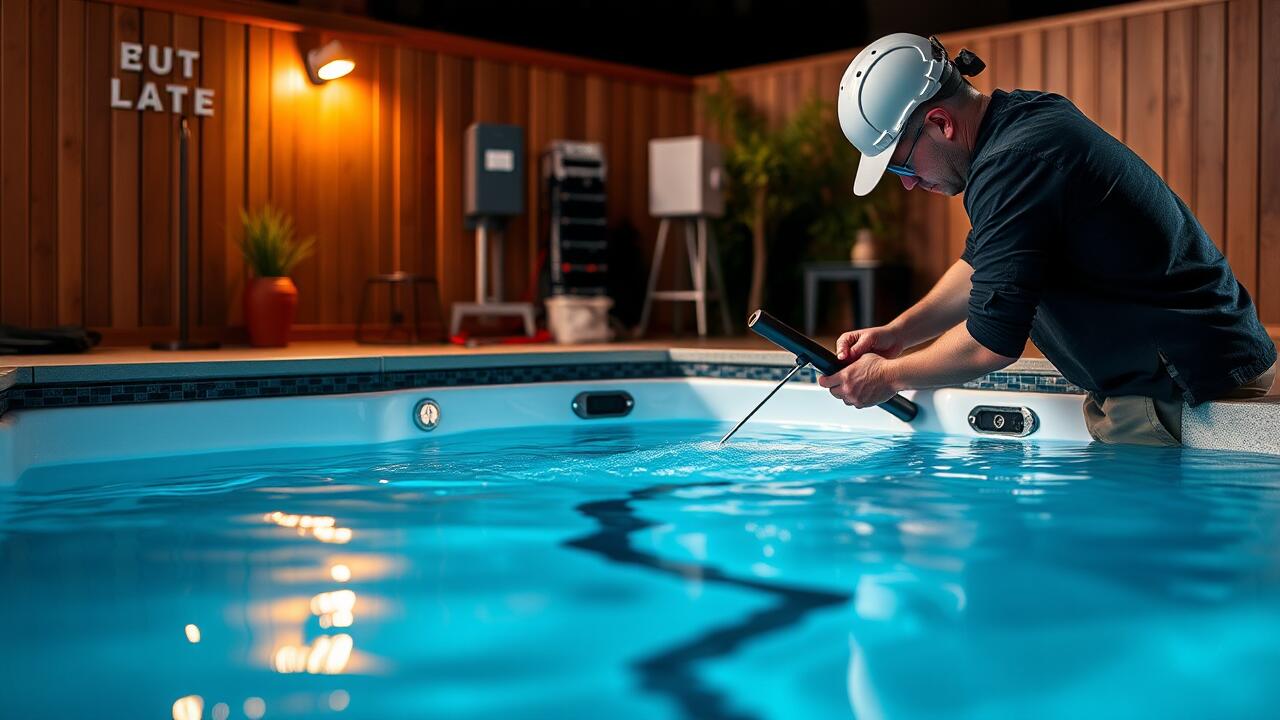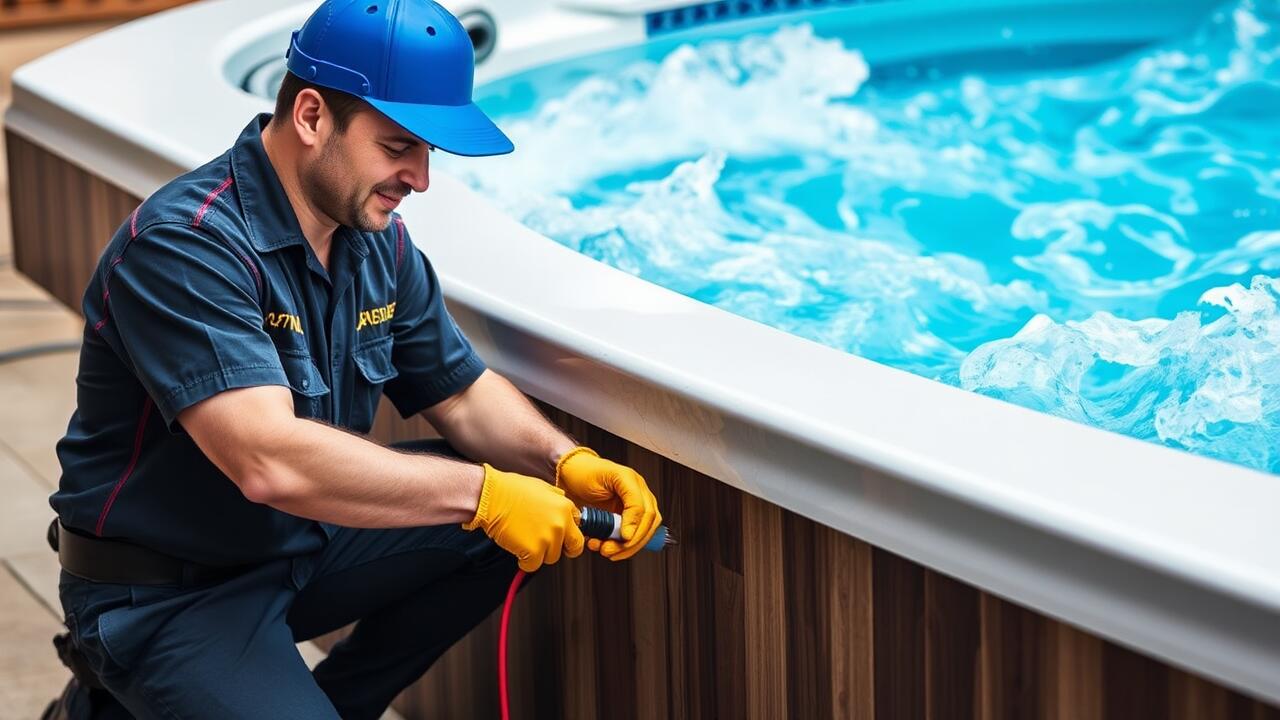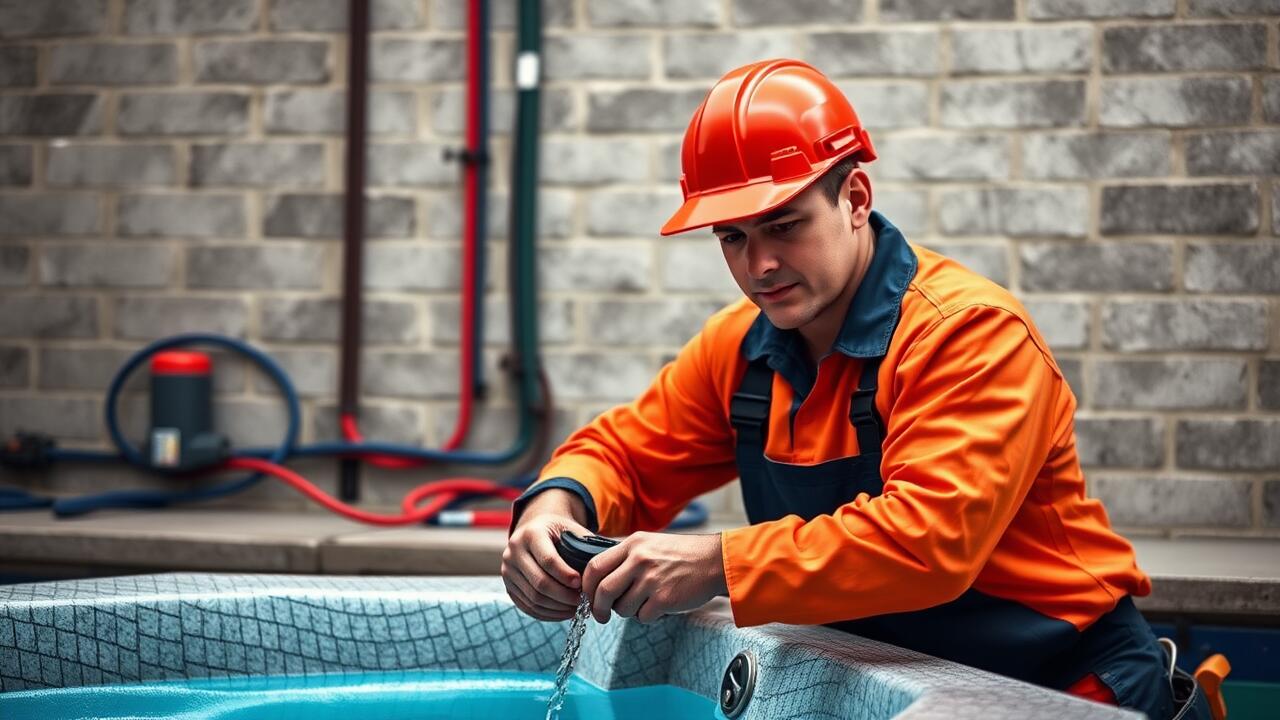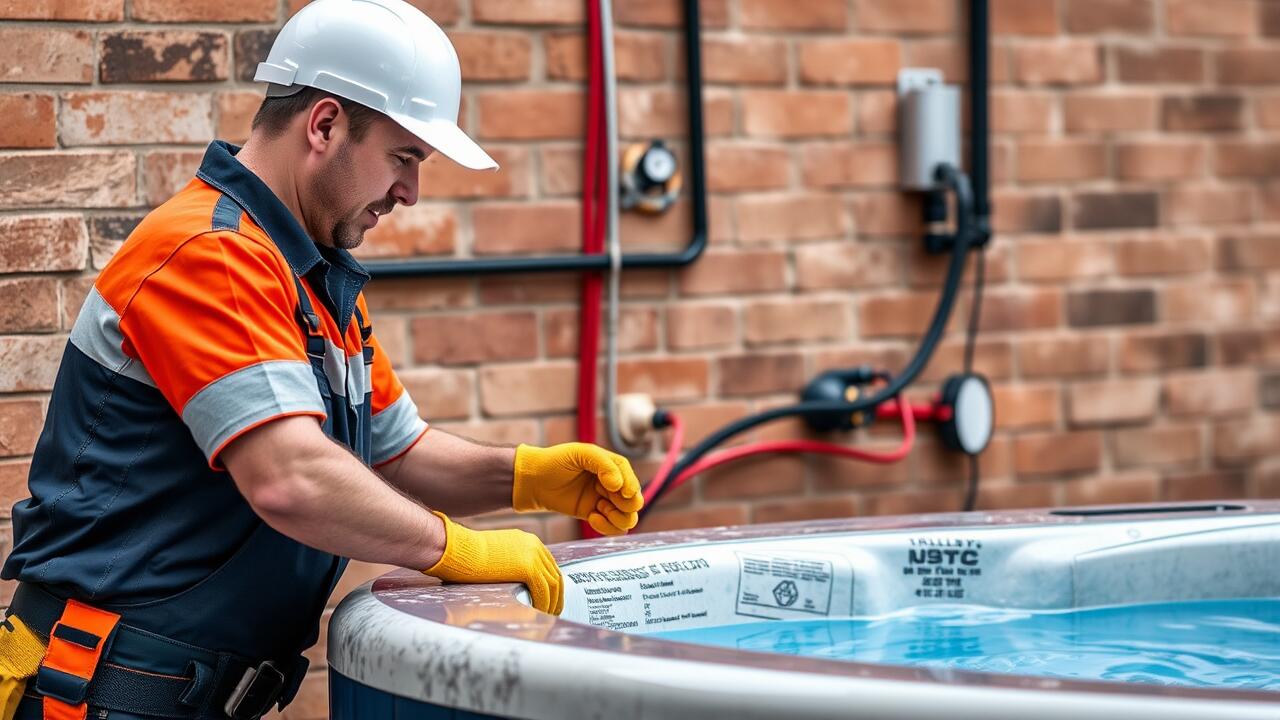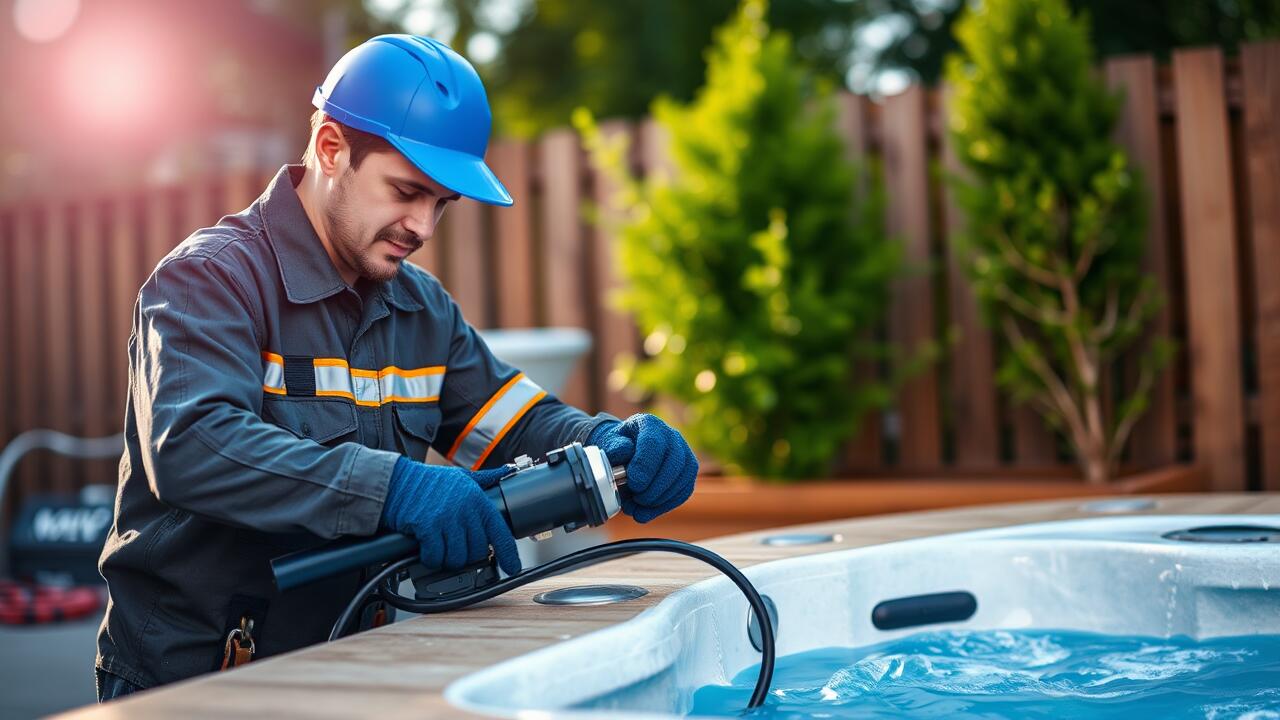
Using Non-Waterproof Components
When installing a hot tub, it is crucial to use components that are specifically designed to withstand exposure to moisture. Non-waterproof electrical parts present a significant risk, as they may fail when exposed to water, leading to short circuits and potential injuries. The combination of electricity and water is dangerous, making it essential to choose materials certified for wet locations. Those who overlook this guideline often face complications that could have been easily avoided by adhering to proper standards.
In areas such as Memorial, Houston, understanding the importance of using waterproof components is vital for safety. Professionals who specialize in Pool and Hot Tub Wiring in Memorial, Houston, ensure that only appropriate materials are used during installation. This not only meets regulatory requirements but also provides peace of mind for hot tub owners. Proper installation reduces the chances of electrical malfunctions and protects users from serious hazards associated with water and electricity.
The Risks of Water Damage to Electrical Parts
Water damage poses significant risks to electrical components in hot tubs. When water infiltrates non-waterproof electrical parts, it can lead to malfunctions or short circuits. Any moisture in the wiring can create dangerous conditions, increasing the likelihood of electrical shock or equipment failure. Regular inspection of waterproof ratings for all electrical components is essential to ensure safety and efficiency.
Proper installation and maintenance of hot tub wiring are crucial. Homeowners must be vigilant about potential leaks or drips that may compromise electrical systems. Engaging professionals who specialize in Pool and Hot Tub Wiring in Memorial, Houston, can provide the necessary expertise and peace of mind. Prioritizing safety in these installations helps prevent accidents and ensures an enjoyable experience.
Incorrect Voltage and Amperage Ratings
Incorrect voltage and amperage ratings can lead to significant safety hazards in hot tub installations. Using a power source that does not match the manufacturer's specifications can result in equipment failure or pose fire hazards. Hot tubs often require specific electrical service ratings to operate effectively without causing damage to the system. Compliance with the National Electrical Code is essential for ensuring that the installation meets the required standards.
Pool and Hot Tub Wiring in Bellaire Junction, Houston requires careful attention to the voltage and amperage ratings of the connected electrical components. Using mismatched ratings can cause circuit breakers to trip frequently or lead to overheating of wiring systems. This not only impacts the performance of the hot tub but also increases the risk of electrical shock or fire. Proper assessments and installations by licensed electricians help mitigate these risks, ensuring user safety and compliance with local regulations.
Understanding Electrical Ratings for Hot Tubs
Electrical ratings for hot tubs are crucial for ensuring safe and efficient operation. Each hot tub comes with specific requirements for voltage and amperage that must match the electrical supply to avoid potential hazards such as overheating or equipment failure. Understanding these ratings protects both the user's investment and their safety. Manufacturers provide guidelines that should be strictly adhered to during the installation process.
Pool and Hot Tub Wiring in Memorial, Houston, emphasizes the importance of hiring qualified professionals to inspect and install wiring that meets these standards. An experienced electrician can help ensure that the hot tub's electrical system meets local codes and regulations, significantly reducing the risk of electrical malfunctions. Proper installation not only enhances the bathtub's performance but also contributes to a safer environment for those enjoying the facility.
Failure to Bond Metal Components
Proper bonding of metal components is crucial in hot tub installations. All metal parts, such as the frame, railings, and any nearby electrical fixtures, must be electrically connected to prevent any difference in electrical potential. Without proper bonding, these metal components can become energized in the event of a fault. This poses a serious risk of electrocution to users. Adhering to bonding requirements is essential for ensuring safety and compliance with electrical codes.
In Bellaire Junction, Houston, professional expertise in Pool and Hot Tub Wiring is vital to address bonding issues effectively. Experienced electricians understand the local codes and regulations regarding metal bonding in hot tubs. They know how to install the proper equipment to ensure that all components are bonded securely. This attention to detail not only enhances safety but also ensures a reliable and efficient hot tub electrical system.
How Bonding Prevents Electrocution Risks
Bonding metal components in and around hot tubs serves a critical safety function. When all metallic parts are properly bonded, it ensures that they share the same electrical potential, reducing the risk of electric shock. In the event of a fault, the electrical current can safely flow back to the ground rather than passing through anyone who comes into contact with the hot tub. This practice is not just a recommendation but a requirement under the National Electrical Code for areas where water and electricity interact.
Incorporating proper bonding techniques is essential for preventing electrocution risks. It involves connecting the metal components of the hot tub, such as ladders, railings, and the shell, to a grounding system. Awareness of these requirements is especially important for homeowners and contractors involved in Pool and Hot Tub Wiring in Bellaire Junction, Houston. Proper installation and adherence to bonding standards create a safer environment, ensuring that users can enjoy their hot tub without fear of electrical hazards.
FAQS
What are common electrical code violations in hot tubs?
Common electrical code violations in hot tubs include using non-waterproof components, incorrect voltage and amperage ratings, and failure to bond metal components properly.
Why is it important to use waterproof components in hot tubs?
Using waterproof components is crucial because non-waterproof parts can be damaged by water exposure, leading to electrical failures and increased risks of electrocution.
What are the consequences of incorrect voltage and amperage ratings in hot tubs?
Incorrect voltage and amperage ratings can result in overheating, malfunctioning equipment, and potentially dangerous electrical fires, compromising both safety and functionality.
How does bonding metal components in a hot tub help prevent electrocution?
Bonding metal components helps ensure that all metal parts are connected to a common ground, reducing the risk of dangerous voltage levels on surfaces that users may come into contact with, thus preventing electrocution.
What should I do if I suspect my hot tub has electrical code violations?
If you suspect your hot tub has electrical code violations, it is essential to contact a licensed electrician or hot tub technician to assess and rectify the issues to ensure safety and compliance with local codes.
